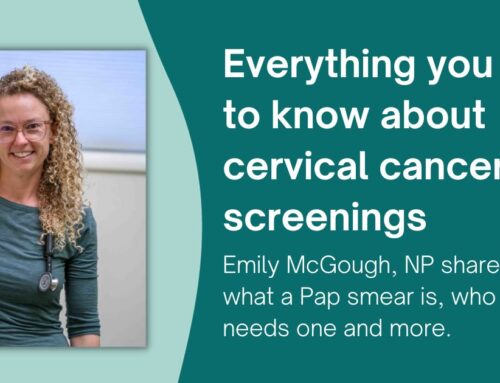
Currently, many of our worries may focus around the many unknowns we are facing.
Dr. Seth Gillihan posits that when we are faced with uncertainty, we experience discomfort, and often want to do everything in our power to ensure the worst does not happen.
In times of stress, we often mull over worst case scenarios as an attempt to regain control.
The more we worry, the more this habit can become reinforced; if we worry and nothing bad happens, we may subconsciously believe that worrying helped us avoid a bad outcome, and if something bad happens, it can validate our worry.
So how can we control our anxious thoughts and work to change this pattern? While there is no one-size fits all solution, one way to manage our worry is to evaluate whether what we are worrying about is within our control or not.
From there, we can opt to focus on what we do have some say in.
In the midst of our current reality, it can feel like there is so much outside of our control, and that on a large scale there are many causes for concern. But if we zoom in, we can identify things we can control, and implement problem-solving strategies to create positive changes in our lives.
By taking action, even for things that feel small, we are able to feel more empowered and in control.
You have control over your ability to engage in positive self-care activities, to challenge the negative thoughts that may pop into your head, to exercise, to connect with those you care about and to practice good hygiene to stay safe.
You have the control to be able to make your individual space pleasant and clean, to spend time outside, to choose who you express yourself to, to find ways to help others, to decide how you spend your time and many other things.
I can be reached by calling the Telluride Medical Center at 970-728-3848, or if you are a patient of Telluride Medical Center, by messaging me through the Telluride Medical Center portal.
If you are experiencing a mental health crisis, please call The Center for Mental Health’s crisis line at 970.252.6220.
Be well,
Lindsay Wright
Lindsay Wright | Behavioral Health
Telluride Medical Center







